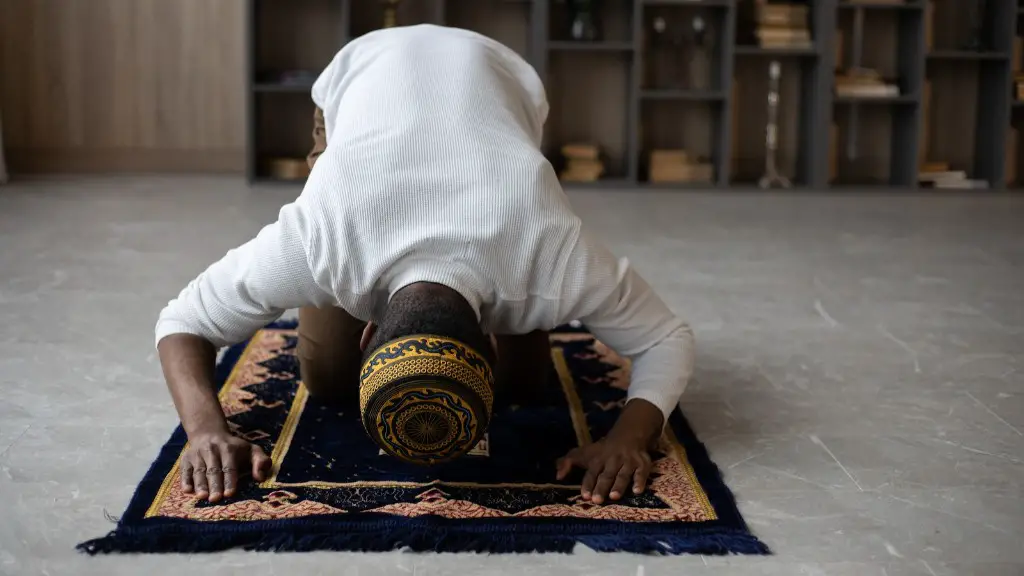Orthodox Judaism Fundamentals
The Orthodox Judaism movement adheres strictly to the teachings and traditions of the ancient Rabbis of the Talmud. This includes an absolute adherence to the 613 mitzvoth, or commandments, of the Torah On a spiritual level, Orthodox Jews seek to connect with God in prayer, observing Shabbat and the festival days, conduct learning sessions (which are done through study of the Torah, Talmud and other Jewish philosophical texts) and performing good deeds.
In terms of dietary and behavioral law, Orthodox Jews keep a strict separation between dairy and meat products, as instructed in the Torah. The Orthodox community is also strictly conservative in regards to dress and sexuality, with traditional clothing and gender roles being heavily emphasized. In addition, Orthodox Judaism emphasises the importance of marriage and the family unit.
The Orthodox synagogue also functions as the centre of communal life, hosting regular services, classes and festivals. Furthermore, communal charity funds assist those in need, upholding the concept of tzedukah (righteous giving). This charity extends to the wider community and specifically, to people of other faith practices too.
Orthodox Judaism is noted for its strong emphasis on religious values and the observance of the mitzvoth. This is fundamentally an element of what they believe and how they choose to live their lives in service to God.
Orthodoxy and Zionism
Orthodoxy and Zionism are unique in Jewish thought, and the two are deeply intertwined. As a political system, Zionism is a modern concept that was created in the late 19th century, but its origin is deeply rooted in traditional Jewish sentiment.
Orthodox Jews have amongst their numbers some of the most staunch Zionists. This is due to the recognition of the principles of Zionism, which includes the reestablishment of a Jewish homeland in the Land of Israel, as being written in the religious canon. One of the most famous Rabbis in the Orthodox world, Rabbi Yitzhak Kook, was a passionate advocate of Zionism.
In the modern era, the relationship between Zionism and Orthodoxy has only strengthened. Many modern Orthodox institutions have been set up in the State of Israel, providing religious guidance to its citizens. Furthermore, Orthodox Jews in the Diaspora are able to financially support the State of Israel, promoting development and strengthening its political position.
The Orthodox community also actively supports religious nationalism in its homeland. This is seen in its support for the current government, Jewish settlements in the West Bank, and its own active involvement in the political process.
Orthodox Judaism and Values
At its core, Orthodox Judaism is focused on religious values, which it seeks to instill in its members. This includes a strong sense of communal responsibility and adherence to the mitzvoth of Torah. Consequently, truth, justice, humility and charity are highly emphasised behaviours.
Orthodoxy is also known for its holism and a holistic view on religious practice. It recognises that the physical, spiritual and mental aspects of our lives must all be integrated in a proper manner. This includes the concept of kavod habriot, which is the principle that all human beings are entitled to dignity and respect, regardless of their faith or world view.
In addition, Orthodoxy places great emphasis on the importance of education. This includes both traditional Torah study as well as providing a modern, well-rounded education. Furthermore, Orthodoxy encourages its members to research and explore new ideas in order to form an educated opinion.
Finally, Orthodox Jews believe in the concept of emunah, which is the absolute trust and belief in a higher power. This faith is often expressed through prayer, which is seen as a way to connect to the divine presence. In turn, this is translated into their daily lives through their commitment to the 613 mitzvoth.
Orthodox Judaism and the Future
Orthodox Judaism is likely to remain a significant part of Jewish life and culture going into the future. This is due to its strong reliance on tradition, which anchors its beliefs to a time-honoured set of religious practices, texts and interpretations.
Furthermore, in recent years there has been an increased focus on the importance of modernity and inclusion within Orthodoxy. This has seen a rise in the number of egalitarian institutions and organizations, with a particular focus on better inclusion for women and marginalised minorities.
At the same time, the Orthodox Jewish community remains one of the most traditional faith practices. It maintains a strict separation between itself and other religious groups, and is opposed to intermarriage and assimilation. This has given it a strong, unified identity, as well as a sense of security.
Finally, the Orthodox Jewish community remains highly active politically and socially. They are heavily represented in a variety of national and international bodies, while their Israel-based institutions remain the centres of religious guidance for the entire Jewish people.
Orthodox Judaism and Jewish Tradition
In Orthodox Judaism, tradition plays a prominent role in defining its beliefs and practices. This is seen in various ways, such as its strict adherence to the halakhic legal code, which is derived from the Talmud. Consequently, Orthodox Jews believe that halakah must be observed precisely and faithfully in order to remain true to the original teachings.
Furthermore, the traditional rituals and festivals of Orthodox Judaism are an important part of their faith practice. This includes gathering for Shabbat, Passover and Sukkot, and celebrating these occasions with communal prayer and celebration.
In addition, Torah study remains at the core of the Orthodox belief system. They look to the teachings of the Torah to gain insight and knowledge, and to find a suitable spiritual path. This includes not only studying the Bible in a literal sense, but also reading it metaphorically and digging beneath the surface for deeper meanings.
Finally, the Orthodox community emphasises the importance of interpersonal relationships, providing guidance on the manner in which people interact with each other. Such guidance is based on the concept of kavod habriot, which states that all members of the community should be treated with respect and dignity.
Orthodox Judaism and Social Outreach
In recent years, the Orthodox Jewish community has stepped up its efforts in social outreach and engagement. This has included setting up a number of communal charities, as well as engaging in volunteer work both locally and internationally
Furthermore, some Orthodox synagogues and organisations are reaching out to members of other faith traditions, such as Christianity and Islam, in an effort to foster understanding and mutual respect. This includes hosting interfaith dialogues, attending local and global interfaith events, and developing meaningful relationships with members of other faith communities.
At the same time, Orthodox Jewish institutions are trying to bridge the gap between religious Jews and secular Jews. Projects such as Torah on Campus, which provides university students with religious programming and classes, are helping to bring together people from different backgrounds who share a common faith.
The Orthodox Jewish community is also putting effort into encouraging people to observe mitzvoth in their lives. This is seen in the establishment of mikvahs, the ritual baths, and the proliferation of kosher restaurants and supermarkets.
Finally, the Orthodox community has stepped up its efforts to give back to the wider world. This includes participating in relief efforts and raising funds for those who need it most. In doing so, they hope to uphold the strong value system of tzedukah (righteous giving) that lies at the heart of their practice.



